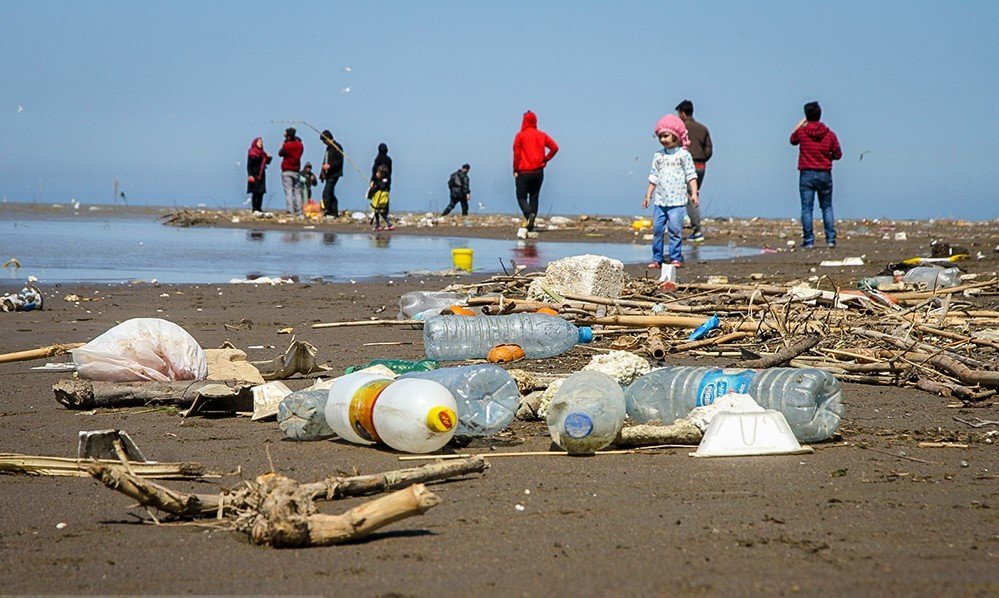Comprehensive plan prepared for marine waste management

TEHRAN- A comprehensive marine environment monitoring program for the country has been designed, said an official with the Department of Environment.
“The program includes both biological and pollution monitoring for the Persian Gulf, the Oman Sea, as well as the Caspian Sea,” ISNA quoted Omid Seddiqi, the DOE official, as saying.
“The comprehensive program for monitoring the pollution of the Caspian Sea has made further progress and its fund has been provided. It will begin in late autumn with the help of an ocean-going vessel,” he explained.
The monitoring is done in a cold and a warm season. The entire coastal and deep waters of the Caspian Sea, sediment, and aquatics are sampled and checked in the laboratory in terms of pollution such as heavy metals, oil, pesticides, microbes, and plastics. Then the pollution is zoned.
This program will probably start in autumn or early winter in the south of the country with the help of the Persian Gulf probe ship. These monitoring programs are planned to be repeated every year or every two years to reduce plastic pollution in highly polluted areas.
Marine plastic pollution impacts
Over 300 million tons of plastic are produced every year. If discarded improperly, plastic waste can harm the environment and biodiversity.
At least 14 million tons of plastic end up in the ocean every year. Plastic debris is currently the most abundant type of litter in the ocean.
Most sources of plastic debris found in the ocean are land-based. Plastic pollution is a widespread problem affecting the marine environment.
It threatens ocean health, the health of marine species, food safety & quality, human health, and coastal tourism, and contributes to climate change.
The most visible impacts of plastic debris are ingestion, suffocation, and entanglement of hundreds of marine species.
Marine wildlife such as seabirds, whales, fish, and turtles mistake them for prey and die of starvation as their stomachs become filled with plastic. They suffer lacerations, infections, reduced ability to swim, and internal injuries.
Also, when marine organisms ingest plastic debris, these contaminants between marine species and humans through the consumption of seafood have been identified as a health hazard and research is ongoing.
Measures taken
The United Nations Environment Program (UNEP), in cooperation with member countries, has come to the conclusion that the need for a convention to manage and reduce plastic waste with an emphasis on the marine environment is felt. So, it has made serious efforts in the last two years, and in this regard, it has held three global meetings.
So far, several negotiations and working groups have been held in Uruguay, France, and Kenya. The next meeting is scheduled to be held in Canada hosted by the UNEP.
Iran DOE in cooperation with the Ministry of Foreign Affairs is also preparing a draft of the convention.
Future actions
On September 22, Ali Salajeqeh, the head of the Department of Environment (DOE), in the meeting of the ministers of the contracting parties to the Convention on the Protection of the Marine Environment of the Caspian Sea said, "Ignoring the pollution will deprive the future generations of a clean and fruitful sea. In combating oil pollution, fortunately, the Aktau protocol has been signed and come into force. Cooperation with this protocol can be a part of the solution."
So, efforts should be made to adhere to and strengthen existing international legislative frameworks that address marine plastic pollution.
The most important are the 1972 Convention on the Prevention of Marine Pollution by Dumping Waste and Other Matter (the London Convention), the 1996 Protocol to the London Convention (London Protocol), and the 1978 Protocol to the International Convention for the Prevention of Pollution from Ships (MARPOL).
Governments should explore national legislative frameworks on Extended Producer Responsibility.
Researchers and industries need to work collaboratively to redesign products and rethink their use and disposal to reduce plastic waste.
Consumers and societies must shift to more sustainable consumption patterns.
Finally, more funding for research and innovation should be made available to provide policymakers, manufacturers, and consumers with the evidence needed to implement technological, behavioral, and policy solutions to address plastic pollution.
Leave a Comment